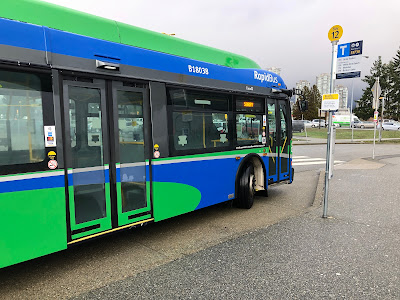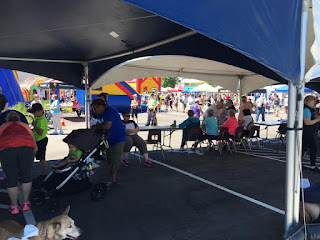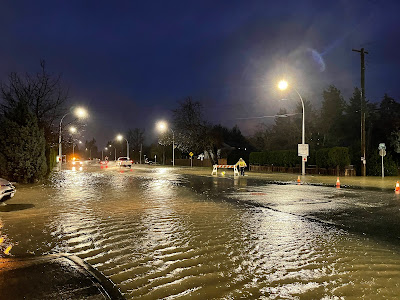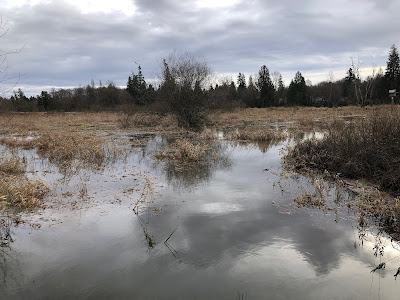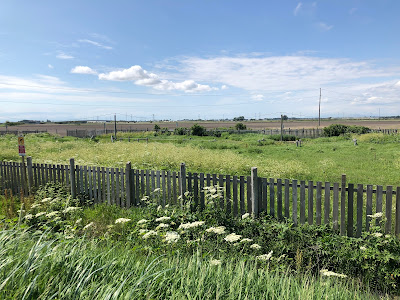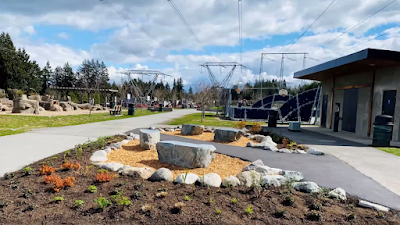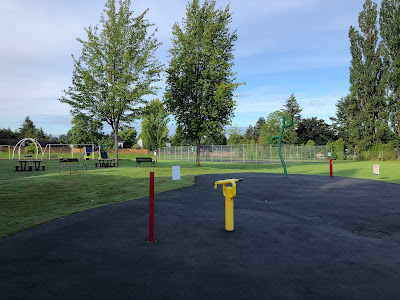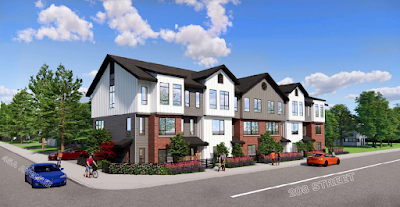Langley City Council approved some financial measures at its Monday afternoon meeting. With the 2022-2026 Financial Plan adopted previously, Council gave first, second, and third reading to the 2022 Tax Rate Bylaw. This bylaw sets the property tax mill rate for the various property classes, as shown below.
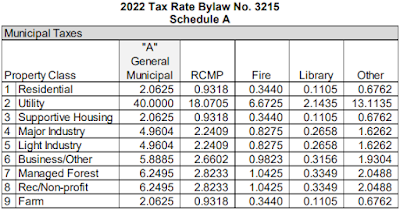
|
| 2022 Mill Rate for Langley City. Select table to enlarge. |
The City is budgeting $33.4 million in property tax revenue this year. The City collects about 51% of total property taxes revenue from residential properties and the remainder from commercial properties and utilities. Of residential properties in Langley City, 68% are strata.
Property tax and utility notices are sent out in June.
Even though the 2022-2026 Financial Plan was just adopted, Council gave first, second and third reading to amend the Financial Plan. It has been about a quarter of a year since Council gave first reading to the Financial Plan. Since then, the City has received grant money to fund projects and has changed other projects’ scope. When this happens, Council needs to approve amendments to the Financial Plan. This process usually happens two or three times per year. The Financial Plan amendments are:
City Park Field Upgrade: A $750,000 Federal Government grant plus an extra $914,995 from casino proceeds to help fund this $2.1 million project
Douglas Recreation Centre Childcare Centre: If City receives a $2.4 million grant from Province, the City will contribute $100,000 to fund the $2.5 million project
Master Transportation Plan: $97,000 grant from TransLink to fund Bus Speed & Reliability Hotspot Study
Traffic Signal Upgrades: TransLink grant to improve 200th Street and 48th Avenue intersection
Facilities Condition Assessment: $10,000 grant from Province to help fund assessment
UBCM Poverty Reduction Grant: $25,000 grant from the UBCM
Nexus SkyTrain Implementation: $50,000 from City reserves
Glover Road Bike Lanes: $100,000 from City reserves to fund additional costs
Fraser Highway (204 St to 206 St) Design: $50,000 from City reserves
Leachate Pump Station for Old Dump Under Uplands Dog Offleash: $75,000 from City reserves to help offset higher costs of the project
Website Upgrade Project: Additional $60,000 from City reserves to fund the $90,000 project
46 Ave, 206A to 207 St Storm Sewer: Additional $100,000 from City reserves
Floodplain Mapping: Additional $20,000 from City reserves to fund the $140,000 project


